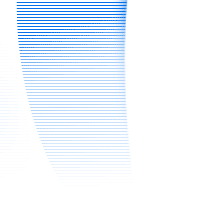
 |

|

 |
Computer or Human? New programs
can tell By Matt O'Brien, University of Miami Newspaper, November 20, 2001 |
 |
 |
 |
 |

|
The original Turing Test, devised by Alan Turing in 1950, consists of an interrogation game where a human questions one human and one computer. If the questioner cannot tell the difference, then the computer passes the Turing Test. As a test, Turings game measures how closely computer behavior resembles human thought. The problem has been widely discussed as a fundamental question in artificial intelligence.
The Carnegie Mellon project, a Completely Automated Public Test to tell Humans and Computers Apart (CAPTCHA), differentiates between human users and computers by presenting complex, distorted patterns that only humans can understand. One CAPTCHA test, for example, measures the users ability to recognize distorted words, something computers cannot do.
The team's ingenious strategy is a win-win situation. If no one manages to break the test, then the software continually protects consumers from abusive programs. On the other hand, if someone devises a program that breaks the test, then computer scientists will have a breakthrough solution to a hard artificial intelligence problem. To break the test, a program must acquire pattern recognition ability comparable to the human mind. This would enable reliable, mechanized scanning of virtually any document, allowing electronic users complete access to libraries of information. A successful crack for writing could then be generalized to other modalities such as sound, advancing voice recognition technology.
The authors, Luis von Ahn, Manuel Blum, and John Langford, have made the code and data public to encourage programmers to break the test. In the end, the public reaps the benefit. Although the average user will probably not use the program, internet sites can use the technology to protect consumers from intrusive programs. Yahoo! already uses CAPTCHA for email accounts. Eventually, the program might provoke a significant artificial intelligence breakthrough. For more information, visit www.captcha.net.
© 2001 The CAPTCHA Project, All rights reserved